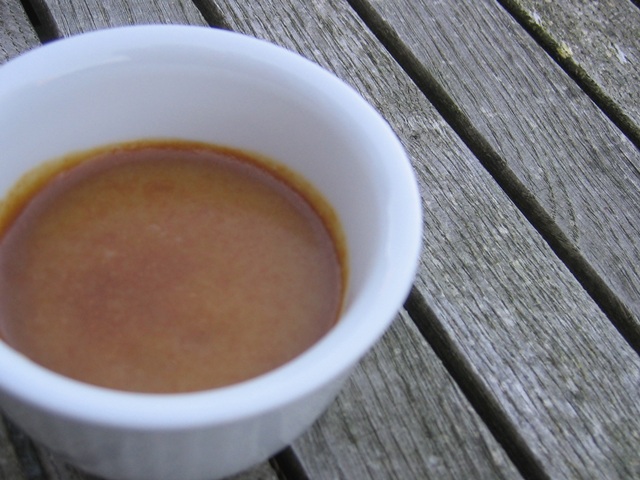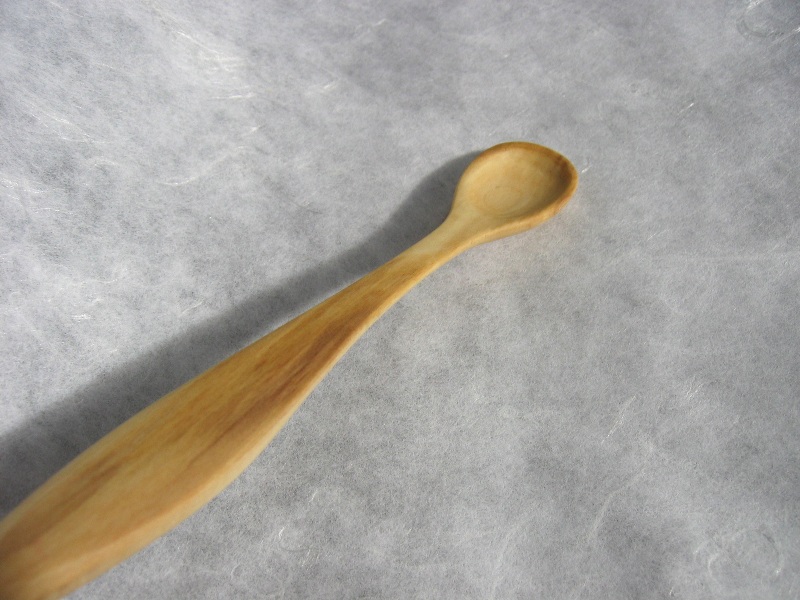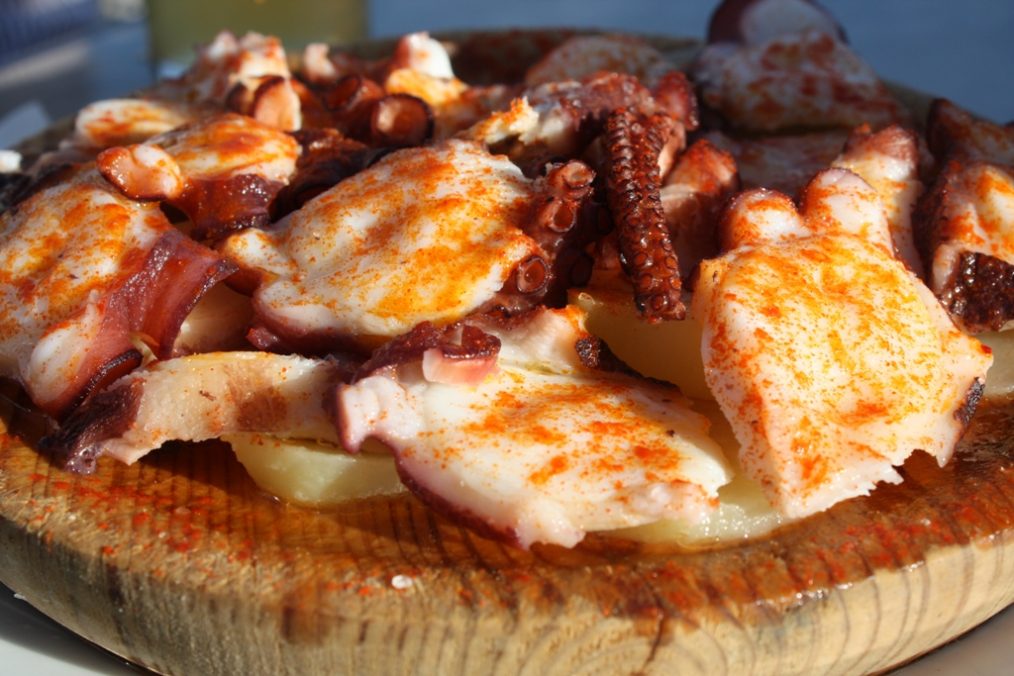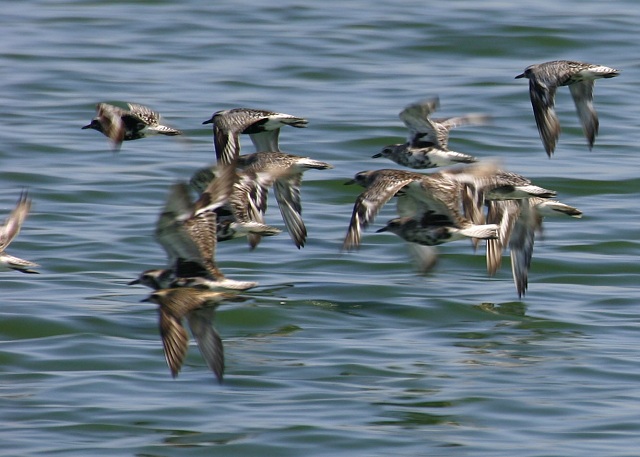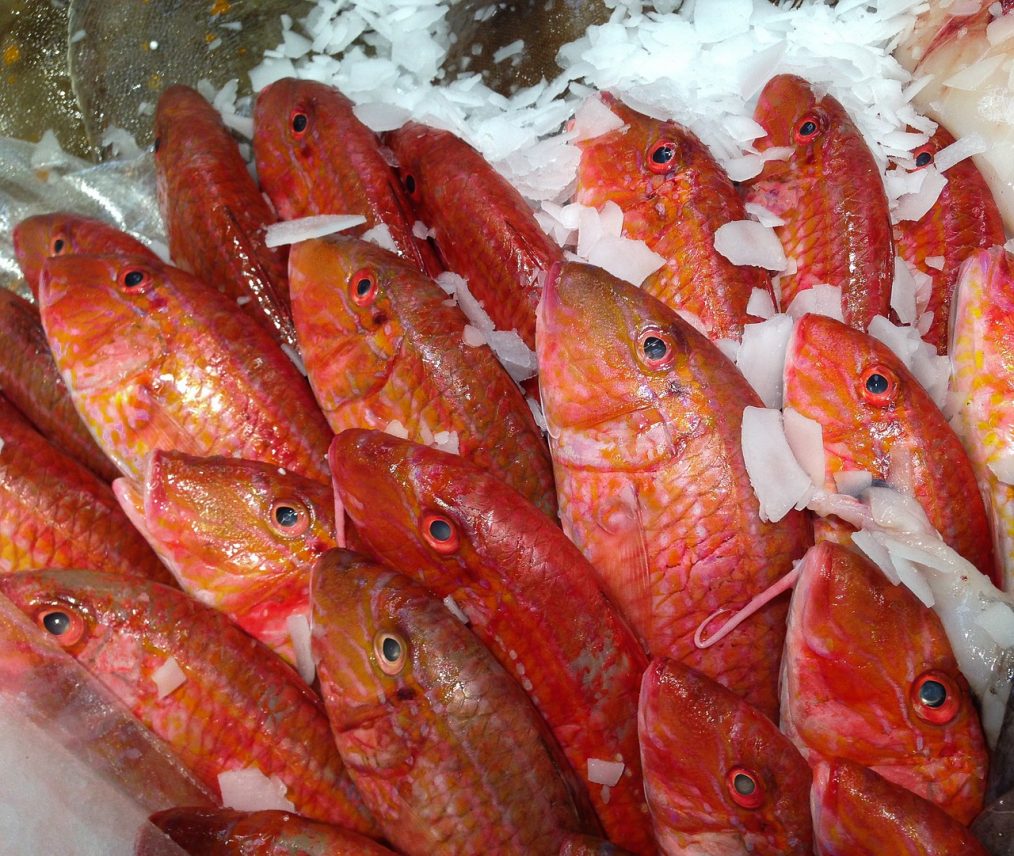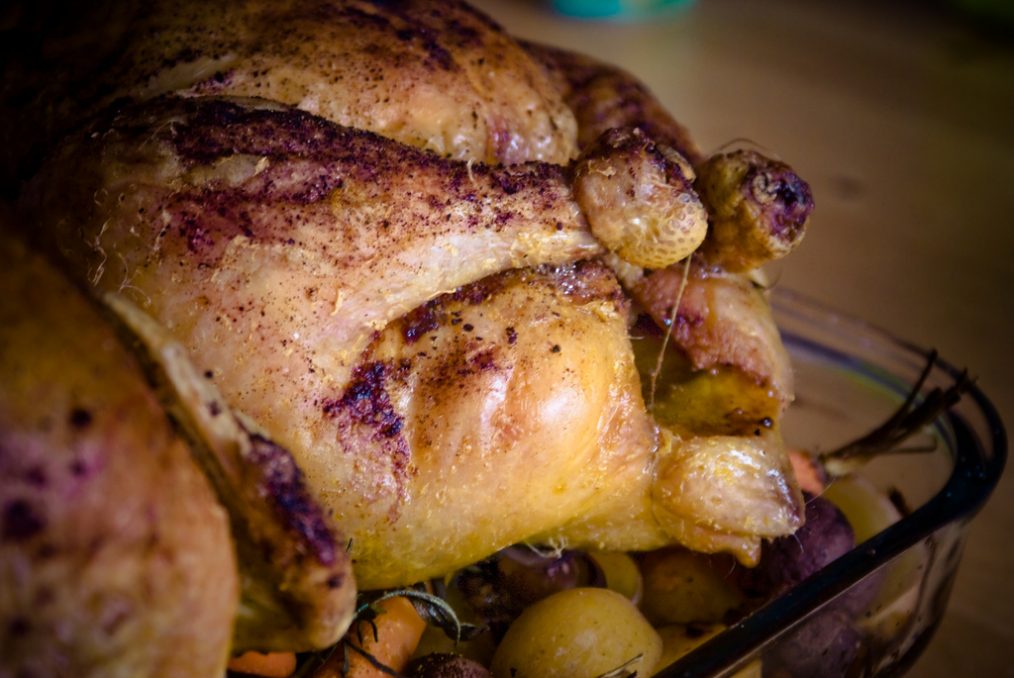 I really enjoy my work. I find teaching (and research) very rewarding, but sometimes the rewards come in mysterious and unexpected ways. One of the students I am working with spent some time over the summer in France, visiting friends. When she returned, she brought me a jar of salted butter caramel sauce from Brittany! Now THAT is rewarding.
I really enjoy my work. I find teaching (and research) very rewarding, but sometimes the rewards come in mysterious and unexpected ways. One of the students I am working with spent some time over the summer in France, visiting friends. When she returned, she brought me a jar of salted butter caramel sauce from Brittany! Now THAT is rewarding.
If you’ve been wondering how this spoon-making process actually looks, the following series of videos posted by Robin Wood should make things a bit clearer. He divides the process in 4 steps, each accomplished with a specific tool. Roughing out is done with a hatchet or small axe, further refining of the overall shape with a knife, then the bowl of the spoon is carved out with a hook knife, before the whole thing is finished with careful smoothing cuts.
Maybe it’s the recent spell of summery weather, maybe it’s the return to grey skies and the inevitable wish to be in Spain, sipping red wine and eating tapas, but whatever it is, I found myself the other day thinking about a dish called pulpo a la Gallega, or Galician Octopus.
It’s difficult not to notice the arrival of autumn, even if you’re still waiting for a summer that never was. The chestnuts are about to burst through their armoured shells, wild mushrooms are shyly poking their caps through the soil, and summer fruits are looking unhappy and getting pricier on the market stands. Today we’ll welcome the change of seasons with a recipe that makes the most of a traditionally autumnal vegetable, fennel, but has the lightness and playfulness of a summer dish.
This is not a cooking column, at least not in the traditional sense. Sure, there will be recipes, but they will always be part of a bigger picture, a grander scheme. This grander scheme is food. This is what this column is about. It is all about understanding where good food comes from, who grows it and who sells it. It is about learning how to take simple, but honest ingredients and making the most of them. This is the essence of this column and my attitude towards food and, though it may appear simple on the surface, it has more depth than meets the eye.

